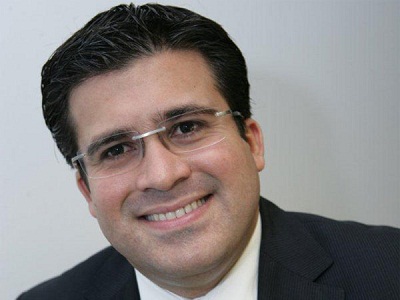
Photo Credit: TechCentral
Within the last month, there have been multiple new examples of mobile phones being leveraged to expand financial services in developing nations. With the popularity and quick success of M-PESA in Kenya, there was a push to copy the model in other developing countries. But it has been realized that the M-PESA model cannot be simply duplicated. The new mobile money products and services need to focus on solving a customer’s pain (or perceived pain) within the regional context (competition, policy environment, culture, infrastructure, etc). The examples below show how innovation in the market is occurring to meet the needs of customers. Mobile Network Operators (MNOs) are seeing the benefits of providing an expanded set of value-added services to differentiate themselves in the market. In a recent TECHTalk at USAID with Pamela Riley from Abt Associates, she explained that MNOs are most focused on increasing and keeping their customers. With greater competition in the mobile network market, the ability to create more value to a MNO’s service keeps the customers from jumping from one provider to another (usually easier because one MNO’s SIM card can be easily switched out for another’s). The MNOs’ desire to increase revenue creates an incentive for them to implement innovative solutions based on the needs of their customers but also within the region’s entire context.
Below are a few recent examples of innovation in the mobile money space:
Mobile Banking
RedCloud Technology recently completed Bolivia’s first mobile money platform. The product, Nube Roja, was created from a $1.2 million investment from BlueOrchard, CONFIE (Corporación de Fomento a Iniciativas Económicas S.L.), PROFIN (Fundación para el Desarrollo Productivo y Financiero), Iceni Mobile, and RedCloud. The goal of the product is to provide access to financial services to roughly 6.5 million people in Bolivia who do not have a bank account. A pilot of the service will begin in the near future with customers being able to cash in, cash out, top up their airtime, transfer money person-to-person, and send remittances.
A newly formed partnership between First National Bank (FNB) and retail store PEP allows customers in South Africa to use FNB’s eWallet for banking services at the retail store. As long as the individual has a bar-coded South African ID, he/she can deposit, withdraw, send, make payments, and purchase goods at any PEP store in South Africa. In the past, only FNB customers could use the product. But with this partnership, FNB is looking to reach the unbanked in the country. Partnering with PEP expands FNB financial services to 1,200 stores and gives greater access to those who have a mobile phone.
As a part of a strategy to expand financial services further into the rural areas of Mexico, the National Savings Bank and Financial Services (Bansefi) is going to use mobile technologies through the implementation of the Program of Technical Assistance to Rural Microfinance (Patmir). Their goal is to have over 15% of their new partners and customers be served with low-cost mobile technology. Bansefi will be hiring a consulting firm to provide technical assistance with the implementation of new technologies, innovations, and best practices.
Money Transfer Services
In partnership with one of the leading MNOs in India (BSNL), the Indian Post Office has begun its own mobile money service. The service allows money be transferred via text message and utilizes the physical post offices to act as cash in/cash out locations. It works by the sender providing the post office with the receiver’s information (number and address) along with the amount to be sent. Once the cash is deposited, both the sender and receiver are text messaged a unique code by the Post Office. In order to withdraw the money, the receiver shows the code to the Post Office. There is a service charge of 5% and is available to individuals across all networks.
Airtel has plans to establish mobile money transfer services in Kenya and Tanzania as it has already done in Uganda. The goal of the new services, as stated by Michael Okwiri, Vice President of Corporate Communivation at Airtel Africa, is eventually create a cross-border money transfer service between the three countries.
Western Union and Telma, a Malagasy telecomm company, have partnered to start an international mobile money transfer service. The new service allows citizens to transfer money via their mobile phones by using Western Union’s international transfer service. By combining Telma’s mobile money service (MVola) and Western Union’s service, individuals can receive money transfers from abroad via their mobile phone. The transfer will go directly into their MVola account. At this point, it is only a one-way service as Malagasy citizens can not send transfers outside the country. MVola, like other mobile money services, allows customers to purchase goods, make payments, and deposit/withdraw money.
ATM
As a part of Airtel’s new mobile money platform in Uganda, customers will be able to process transactions at ATMs. This includes paying bills, accessing their bank accounts, and withdrawing Airtel money using ATMs located country-wide. This service was made possible via partnerships with banks which include Standard Chartered, Post Bank, KCB, and Diamond Trust Centenary Bank.
Credit-Worthiness
A Cambridge start-up has created software in order to help determine an individual’s credit risk by looking at how the person uses their mobile phone. Cignifi has received $2 million in funding after piloting the product last year in Brazil. The software looks at multiple data points in order to further understand one’s lifestyle. It creates a score similar to the FICO score used in the United States. Since many developing countries do not have credit bureaus or limited ones, it is more difficult to calculate the credit risk of an individual person. This is innovative way to understand the riskiness of an potential borrower.









































